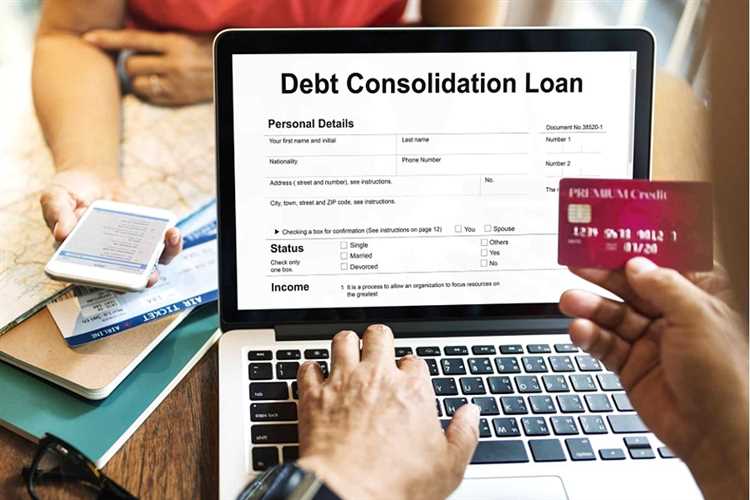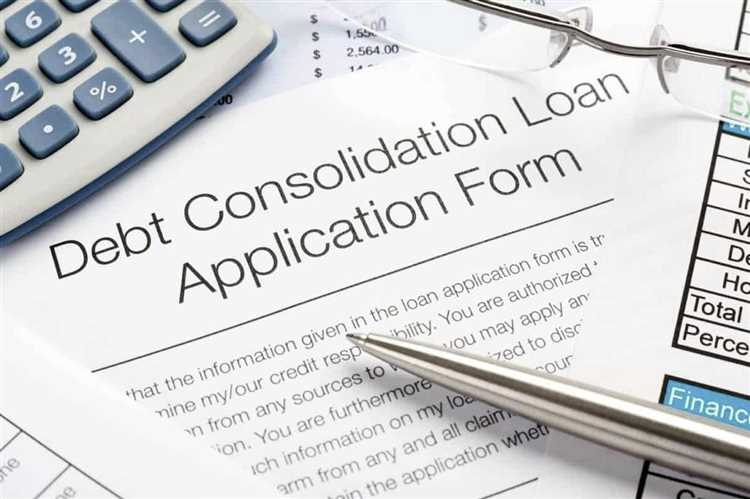Are you overwhelmed by debt? Stressed due to multiple loan payments? Don’t worry, there’s a solution – debt consolidation. It involves taking out a single loan to pay off existing debts, simplifying your finances and reducing interest costs. In the Philippines, finding the best debt consolidation loan is straightforward.
To find the best option, research and compare lenders, focusing on reputable banks or financial institutions. Evaluate their interest rates, fees, and eligibility criteria. Check customer reviews for reliability. Once you’ve narrowed your choices, gather financial documents and apply for a loan, providing details about your current debts.
If approved, review the loan offer carefully, considering the total amount, interest rate, and repayment terms. Ensure they align with your financial goals and budget. Sign the agreement and commit to disciplined financial management to achieve debt-free stability in the Philippines.
Benefits of Debt Consolidation Loan

Dealing with multiple debts can be overwhelming and stressful. If you find yourself struggling to keep up with payments and juggling multiple due dates, a debt consolidation loan may be the solution you need. Here are some reasons why you should consider choosing a debt consolidation loan:
- Lower Interest Rates: Combining multiple debts into one loan can secure a lower interest rate, leading to significant savings.
- Simplified Repayment: With just one monthly payment, managing your finances becomes easier.
- Extended Repayment Terms: Longer terms make debt more affordable and manageable.
- Improved Credit Score: Timely payments on the loan demonstrate financial responsibility and enhance your credit history.
- Reduced Stress: Consolidating debts reduces financial stress and simplifies your life.
- Lower Interest Rates: Debt consolidation loans often have lower interest rates, saving you money.
- Reduce Monthly Payments: Negotiating lower monthly payments can improve budget management.
- Improve Your Credit Score: Consistent, on-time payments enhance your creditworthiness.
- Avoid Collection Calls: Timely payments put an end to collection calls.
- Gain Financial Freedom: Debt consolidation empowers you to control your debts and achieve financial stability.
Lower Interest Rates
When considering a debt consolidation loan in the Philippines, the interest rate is crucial. Lower rates reduce the loan’s overall cost. Options include banks, credit cooperatives, and online lenders, each with different rates. To secure a lower rate, a good credit score is beneficial. Responsible financial behavior can lead to better rates. If your credit score is low, work on improving it before applying.
Offering collateral, such as property or a vehicle, can also lower the interest rate by reducing the lender’s risk.
Some lenders may have promotional rates or discounts for consolidation loans, so watch for special offers.
Before committing, carefully review and understand the loan’s terms, including interest rates and fees. Research and comparison will help you find a debt consolidation loan with lower interest rates that suits your needs and saves you money.
Simplified Repayment Plan
Dealing with multiple debts can be overwhelming and confusing. That’s why a debt consolidation loan with a simplified repayment plan can be a game-changer. This type of loan allows you to combine all your debts into one manageable monthly payment, eliminating the need to keep track of multiple due dates and amounts.
With a simplified repayment plan, you can enjoy the following benefits:
| Benefits | Description |
| Reduce Interest Rates | By consolidating your debts, you may be able to secure a lower interest rate. This can save you money in the long run and make your monthly payments more affordable. |
| Extended Repayment Period | A debt consolidation loan often comes with a longer repayment period, giving you more time to pay off your debts. This can help lower your monthly payment amounts and ease financial strain. |
| One Monthly Payment | Instead of juggling multiple creditor payments, you only need to make one monthly payment towards your debt consolidation loan. This streamlines the repayment process and reduces the risk of missing payments. |
| Improved Credit Score | Consistently making your consolidation loan payments on time can improve your credit score over time. A higher credit score can lead to better loan terms and increased financial opportunities in the future. |
Improved Credit Score
Having a good credit score is essential when applying for a debt consolidation loan. Lenders use your credit score to evaluate your creditworthiness and determine the interest rate and terms of the loan.
An improved credit score not only increases your chances of being approved for a debt consolidation loan but also allows you to secure better interest rates and repayment terms.
Here are some effective ways to improve your credit score:
- Make timely payments: Pay your bills, loans, and credit card balances on time to avoid late fees and negative marks on your credit report.
- Reduce debt: Paying off your existing debts can significantly improve your credit score. Focus on paying down high-interest debts first.
- Avoid new credit applications: Multiple credit inquiries can negatively impact your credit score. Minimize new credit applications while working on improving your score.
- Monitor your credit report: Regularly check your credit report to ensure its accuracy and identify any errors or discrepancies that could be hurting your score.
- Diversify your credit: Having a mix of different types of credit can demonstrate your ability to manage different financial responsibilities. This may include credit cards, loans, and mortgage payments.
- Keep credit utilization low: Try to keep your credit utilization ratio below 30%. Higher utilization ratios can negatively impact your credit score.
- Build a positive credit history: Establishing a long history of responsible credit use can boost your credit score over time. This includes making regular payments and avoiding defaults or bankruptcy.
How to Find the Best Debt Consolidation Loan in the Philippines
When searching for the best debt consolidation loan in the Philippines, there are several factors to consider. These factors will help you evaluate your options and make an informed decision. Here are the key factors to keep in mind:
1. Interest Rates

One of the most important factors to consider is the interest rate offered by different lenders. You should compare the rates offered by multiple lenders to ensure that you are getting the best deal. A lower interest rate will help you save money in the long run.
2. Loan Terms
It is essential to carefully review the loan terms before making a decision. This includes the loan duration and the monthly payment amount. Make sure that the loan terms are feasible and align with your financial goals.
3. Fees and Charges
Make sure to understand all the fees and charges associated with the debt consolidation loan. Some lenders may charge origination fees, prepayment penalties, or other hidden costs. Understanding the fees will help you determine the true cost of the loan.
4. Lender Reputation

Research the reputation of the lenders you are considering. Look for reviews and ratings from previous borrowers to get an idea of their customer service and reliability. A trusted and reputable lender can provide you with a better loan experience.
5. Eligibility Criteria
Check the eligibility criteria set by the lenders. Some lenders may have specific requirements such as a minimum credit score or income level. Make sure you meet the criteria before applying for a debt consolidation loan.
6. Loan Amount
Determine the loan amount you need to consolidate your debts. Different lenders may have different limits on the loan amount. Make sure the lender you choose can provide you with the required funds.
Eligibility and Requirements for a debt consolidation loan in the Philippines
Before you consider applying for a debt consolidation loan, it is important to understand the eligibility criteria and requirements set by the lenders. Meeting these criteria will increase your chances of getting approved for a loan and consolidating your debts effectively.
1. Age: Typically, lenders require borrowers to be at least 21 years old and not more than 65 years old. Some lenders may have specific age requirements, so make sure to check with them before applying.
2. Employment and Income: Most lenders prefer borrowers who are employed either on a permanent or contractual basis. They may require you to have a minimum monthly income, which varies from lender to lender. This is to ensure that you have a stable source of income to repay the loan.
3. Credit Score: Your credit score plays a crucial role during the loan application process. Lenders will check your credit history to assess your creditworthiness and repayment ability. A good credit score increases your chances of getting approved for a debt consolidation loan.
4. Debt-to-Income Ratio: Lenders also consider your debt-to-income ratio, which is the percentage of your monthly income that goes towards paying off debts. Most lenders prefer borrowers with a low debt-to-income ratio, as it indicates that you have enough disposable income to repay the loan.
5. Required Documents: To apply for a debt consolidation loan, you will need to submit certain documents such as proof of identity, proof of income, bank statements, and credit history. Make sure to gather all the required documents beforehand to streamline the application process.
Calculate Your Debt Consolidation Loan

If you’re considering a debt consolidation loan in the Philippines, it’s important to understand the financial implications and determine if it’s the right option for you. Before making any decisions, take some time to calculate your debt consolidation loan to get a clear picture of your financial situation.
To calculate your debt consolidation loan, follow these steps:
1. List All Your Debts:
Gather all your credit card bills, personal loans, and other outstanding debts. Make a comprehensive list that includes the outstanding balance, interest rate, and minimum monthly payment for each debt.
2. Determine Your Monthly Budget:
Review your income and expenses to determine how much you can afford to repay each month. This will help you set a realistic monthly budget for your debt consolidation loan.
3. Research Interest Rates:
Compare the interest rates offered by different lenders for debt consolidation loans. Look for a loan with a lower interest rate than what you’re currently paying on your debts. Remember that a lower interest rate can help you save money in the long run.
4. Calculate the Total Amount Loan:
Add up the outstanding balances of all your debts, including any additional fees or charges. This is the total amount you will need to borrow to consolidate your debts.
5. Determine the Loan Term:
Decide how long you want to take to repay your debt consolidation loan. Keep in mind that a longer loan term may result in lower monthly payments, but you may end up paying more in interest over time.
6. Use an Online Loan Calculator:
Use an online loan calculator to input the loan amount, interest rate, and loan term. This will help you determine your monthly payment for the debt consolidation loan.
7. Compare Loan Offers:
Once you have the estimated monthly payment, compare the loan offers from different lenders. Consider the interest rate, loan term, fees, and any additional features or benefits offered by the lender.
What is a debt consolidation loan?
A debt consolidation loan is a type of loan that allows you to combine multiple debts into one single loan. This can help simplify your finances and make it easier to manage your debt.
How can a debt consolidation loan help me?
A debt consolidation loan can help you by providing a lower interest rate and a longer repayment period, which can reduce your monthly payments and make them more affordable. It can also help you get out of debt faster by consolidating multiple debts into one, making it easier to keep track of your payments and avoid missed payments.
What are the requirements for getting a debt consolidation loan in the Philippines?
The requirements for getting a debt consolidation loan may vary depending on the lender, but generally, you will need to provide proof of income, proof of identification, proof of residence, and your credit history. Some lenders may also require collateral for the loan.
Are there any risks or disadvantages to taking out a debt consolidation loan?
While a debt consolidation loan can be beneficial, there are some risks and disadvantages to consider. One risk is that if you fail to make your loan payments, you could lose any collateral that you used to secure the loan. Another disadvantage is that by extending the repayment period, you may end up paying more interest over the long term. It’s important to carefully consider the terms of the loan and your ability to make the required payments before taking out a debt consolidation loan.
Where can I find the best debt consolidation loan in the Philippines?
There are a few different ways you can find the best debt consolidation loan in the Philippines. You can start by researching different lenders and comparing their interest rates, repayment terms, and fees. It’s also a good idea to read reviews and testimonials from other borrowers to get an idea of their experiences with different lenders. Additionally, you can consult with a financial advisor or credit counselor who can help guide you in finding the best debt consolidation loan for your specific situation.




Leave a Reply